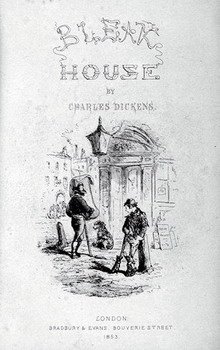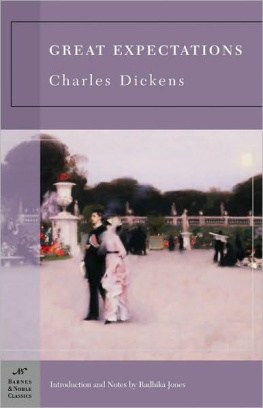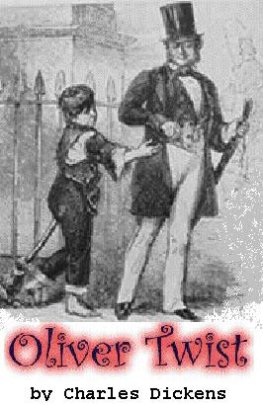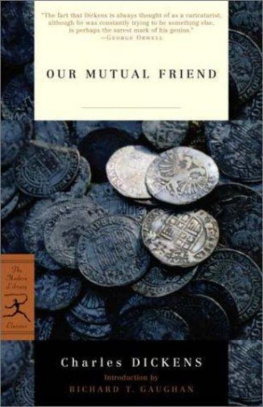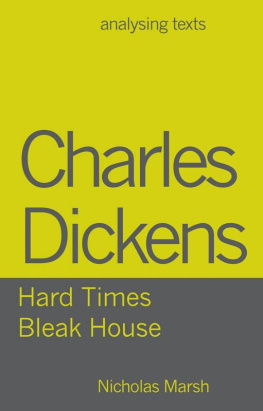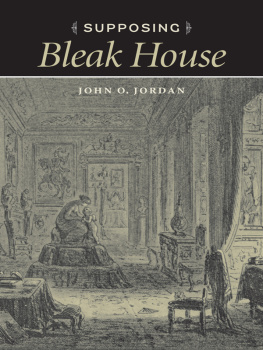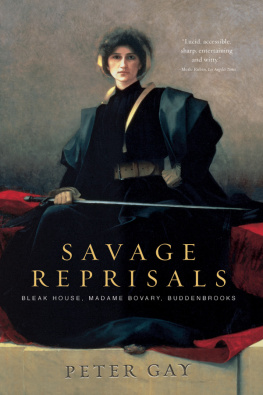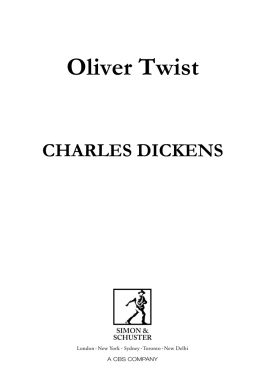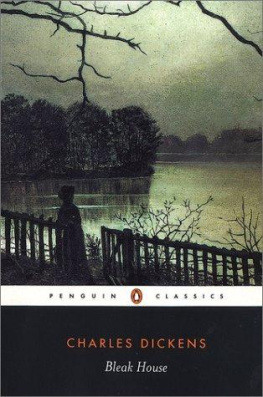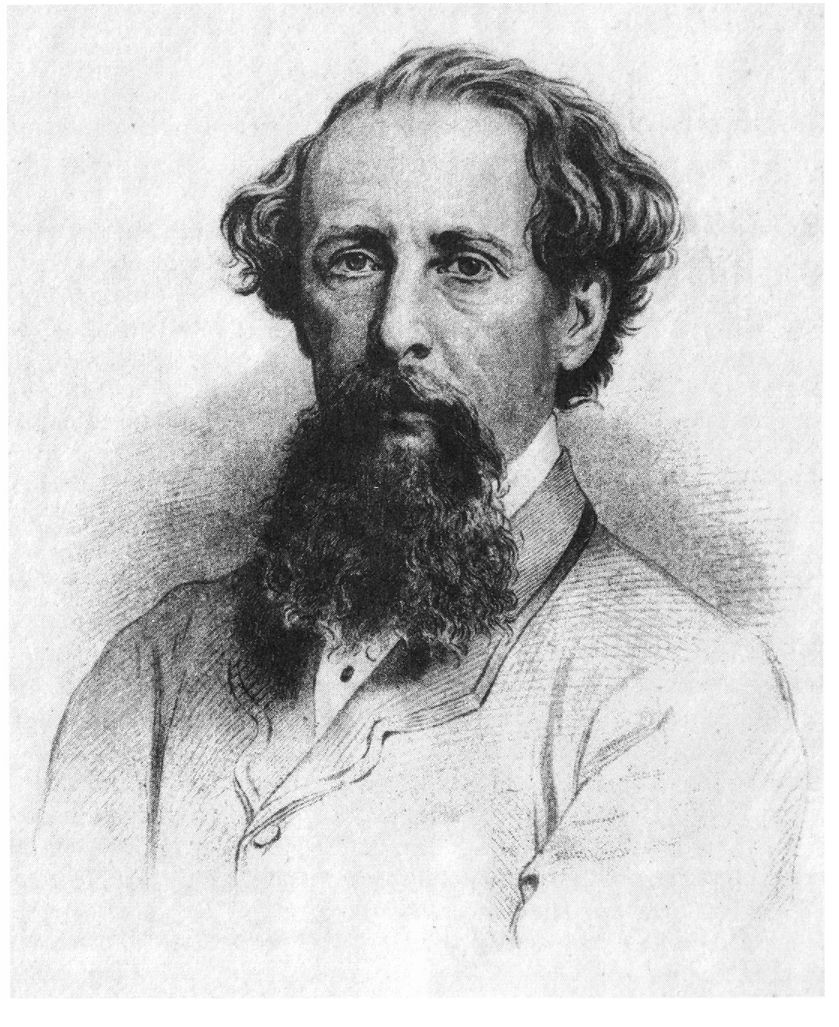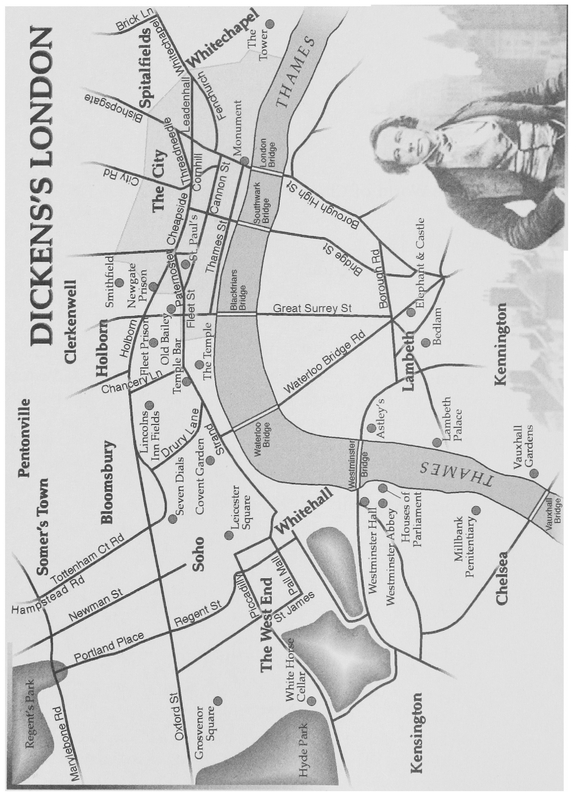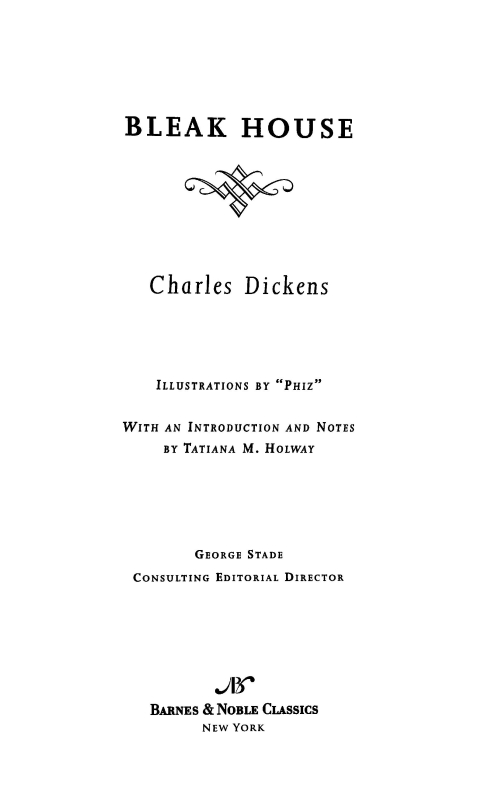
Table of Contents
FROM THE PAGES OF BLEAK HOUSE
He is an honourable, obstinate, truthful, high-spirited, intensely prejudiced, perfectly unreasonable man. (page 25)
All the movables, from the wardrobes to the chairs and tables, hangings, glasses, even to the pincushions and scent-bottles on the dressing-tables, displayed the same quaint variety. They agreed in nothing but their perfect neatness, their display of the whitest linen, and their storing-up, wheresoever the existence of a drawer, small or large, rendered it possible, of quantities of rose-leaves and sweet lavender. Such, with its illuminated windows, softened here and there by shadows of curtains, shining out upon the star-light night; with its light, and warmth, and comfort; with its hospitable jingle, at a distance, of preparations for dinner; with the face of its generous master brightening everything we saw; and just wind enough without to sound a low accompaniment to everything we heard; were our first impressions of Bleak House. (page 79)
Kenge and Carboy will have something to say about it; Master Somebodya sort of ridiculous sexton, digging graves for the merits of causes in a back room at the end of Quality Court, Chancery Lanewill have something to say about it; Counsel will have something to say about it; the Chancellor will have something to say about it; the Satellites will have something to say about it; they will all have to be handsomely feed, all round, about it; the whole thing will be vastly ceremonious, wordy, unsatisfactory, and expensive, and I call it, in general, Wiglomeration. How mankind ever came to be afflicted with Wiglomeration, or for whose sins these young people ever fell into a pit of it, I dont know; so it is. (page 107)
I court inquiry. (page 522)
Contrast enough between Mr. Tulkinghorn shut up in his dark carriage, and Mr. Bucket shut up in his. Between the immeasurable track of space beyond the little wound that has thrown the one into the fixed sleep which jolts so heavily over the stones of the streets, and the narrow track of blood which keeps the other in the watchful state expressed in every hair of his head! (page 668)
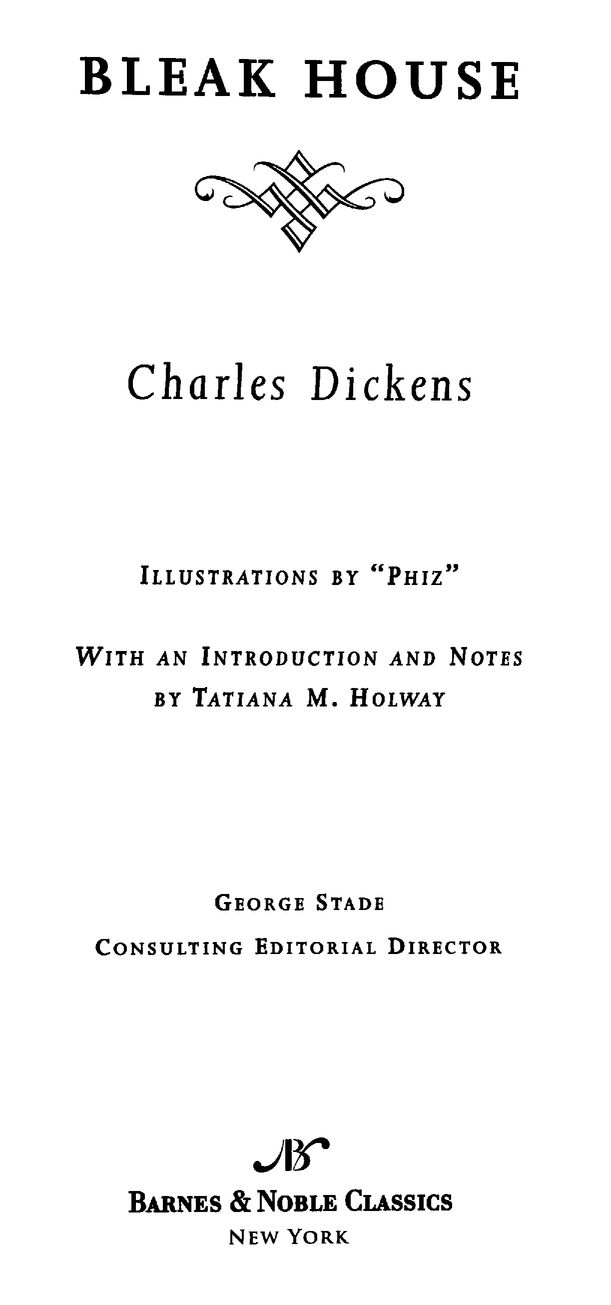
CHARLES DICKENS
Born on February 7, 1812, Charles Dickens was the second of eight children in a family burdened with financial troubles. By the age of twenty-five, he had attained an unprecedented degree of popularity; at the time of his death at age fifty-eight, he was a long-standing national and international institution.
In 1824, Dickenss father was imprisoned for debt, and, while the rest of the family stayed with him in prison, young Charles lodged elsewhere and worked in a factory that produced boot-blacking polish. After several months of this humiliating experience and the release of his father from prison, Charles was enrolled in a private school, which he attended for three years. The young man then became a solicitors clerk, mastered shorthand, and before long was employed as a parliamentary reporter. When he was in his early twenties, Dickens began to publish stories and sketches of London life in a variety of periodicals.
It was the publication of The Pickwick Papers ( 18 3 6-18 3 7 ) that catapulted the young writer to fame. This serialized novel was followed rapidly by several more, including Oliver Twist (1837-1839), Nicholas Nickleby (1838-1839), and The Old Curiosity Shop (1840-1841), which increased his already immense popularity and growing reputation. So, too, did his production of annual Christmas stories, starting with A Christmas Carol (1843). While Dickenss autobiographical novel, David Copperfield (1849-1850), contributed further to the uniquely intimate relationship he had with readers, his publication of his own journals, from 1850 onward, extended his influence and renown even more. At this time, his vision of society became more critical, his humor darker as he reflected more seriously on the condition of England. Bleak House (1852-1853), Little Dorrit (1855-1857), and Our Mutual Friend (1864-1865) are among the masterful novels of this later period. Another, Great Expectations (1860-1861), remains one of his best-loved, critically acclaimed, and widely read books.
In 1858, Dickens separated from Catherine Hogarth, his wife of twenty-two years with whom he had had ten children. He also became infatuated with Ellen Ternan, a young actress who became his mistress in later years. During those years, the intense activity that always characterized Dickenswriting, editing, performing public readings, managing amateur theatricals, and much elseintensified even more, and, working feverishly to the last, he collapsed and died on June 9. 1870, leaving his fifteenth novel, The Mystery of Edwin Drood, unfinished.
THE WORLD OF CHARLES DICKENS AND BLEAK HOUSE
| 1812 | Charles Huffam Dickens is born at Portsmouth to John and Eliz- abeth (nee Barrow) Dickens. He is the second of eight children. |
| 1814 | Sir Walter Scotts prolific career as a popular novelist begins with the publication of Waverly. |
| 1815 | Napoleon is defeated at the Battle of Waterloo. |
| 1817 | The Dickens family moves to Chatham, in Kent, one of several moves prompted by John Dickenss position as a naval pay clerk. Charles begins reading books in his fathers library. His favorite authors include Miguel de Cervantes, Daniel Defoe, Henry Field- ing, and Tobias Smollett. |
| 1822 | Troubled by financial difficulties, the Dickens family moves again, this time to Camden Town, in north London. Charles comes to know the city intimately, and this knowledge becomes an invaluable resource in his later writing. |
| 1824 | Early in the year, Charles is sent to work at Warrens Blacking Fac- tory, a manufacturer of boot-blacking. His father is arrested for debt and imprisoned for three months, and, while the rest of the family stays with John Dickens in prison, Charles lodges else- where and continues the humiliating work of pasting labels onto bottles of blacking at Warrens. |
| 1825 | The first passenger railway, the Stoughton-Darlington line, opens in England. John Dickens retires on a naval pension, and Charles attends Wellington House Academy, a private school where he wins a prize in Latin. |
| 1827 | Dickenss formal schooling ends, and he becomes a solicitors clerk. |
| 1829 | After learning shorthand, he establishes himself as a reporter in the law court of Doctors Commons. |
| 1830 | Dickens acquires a pass to the British Museum, where he reads Shakespeare. He meets and falls in love with Maria Beadnell. Their romance, which lasts three years, is eventually brought to an end by Marias father, who takes a dim view of Dickenss prospects. |
| 1831 | Dickens joins the staff of the Mirror of Parliament, for which he transcribes parliamentary speeches on central topics of the time, including the condition of factory workers and of the poor, |



